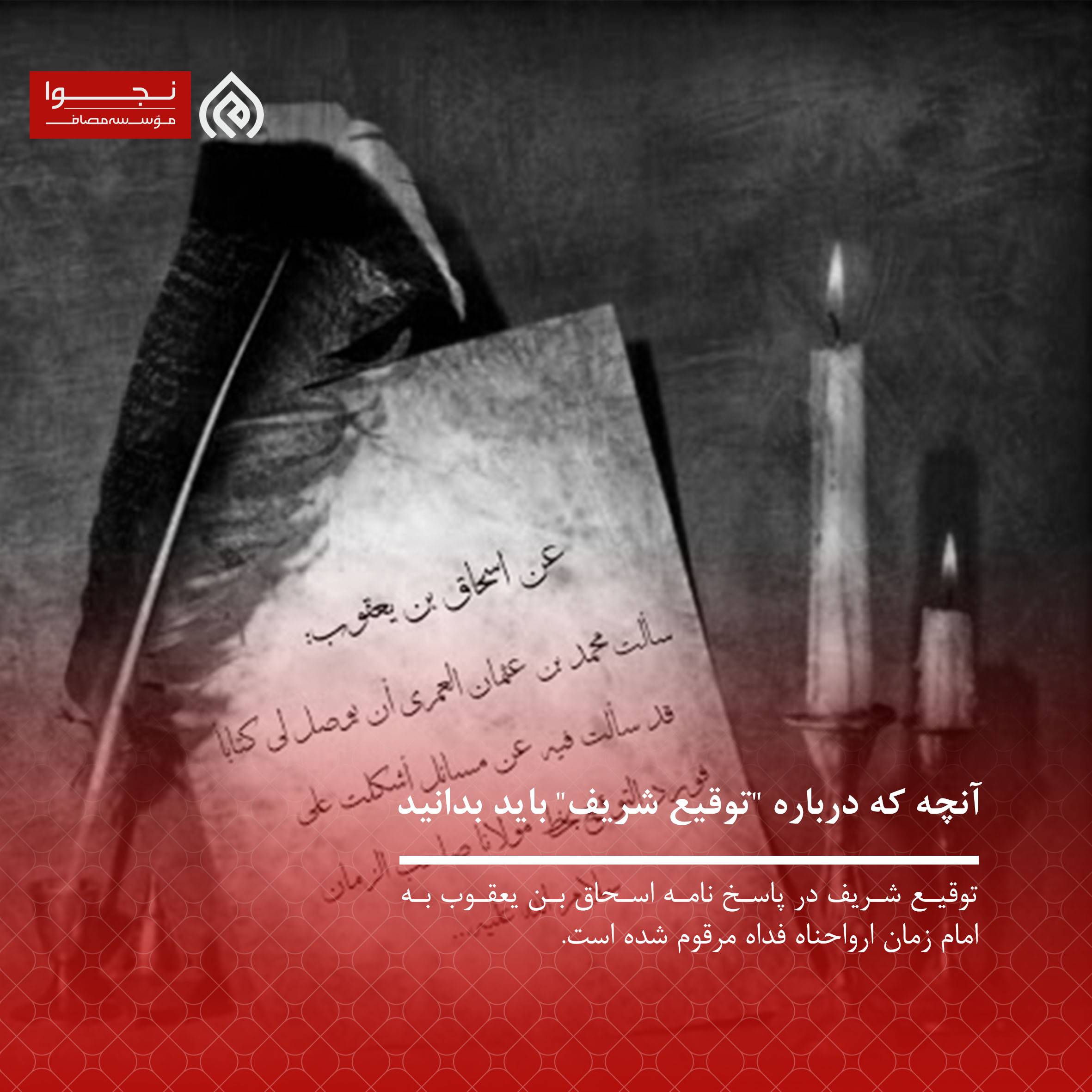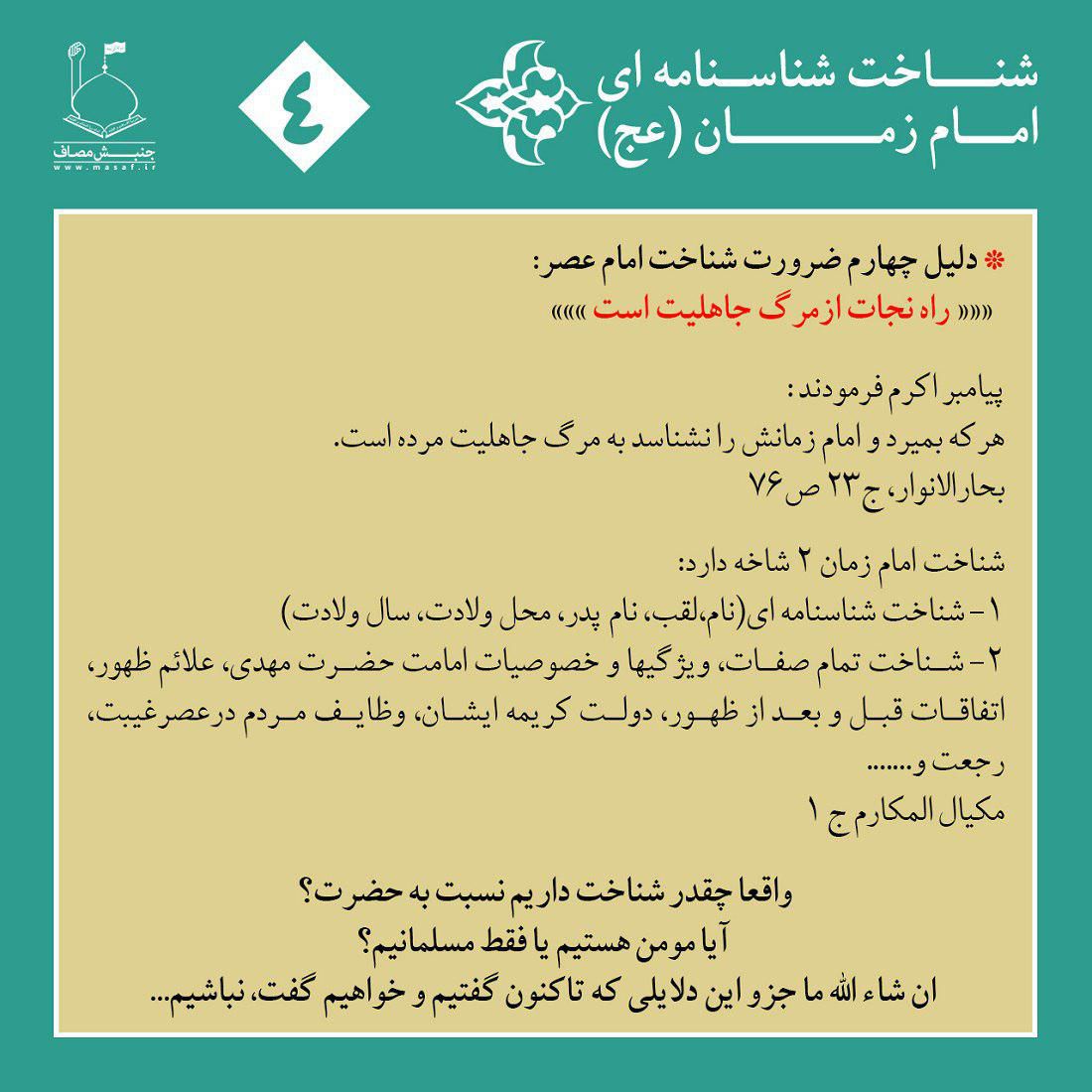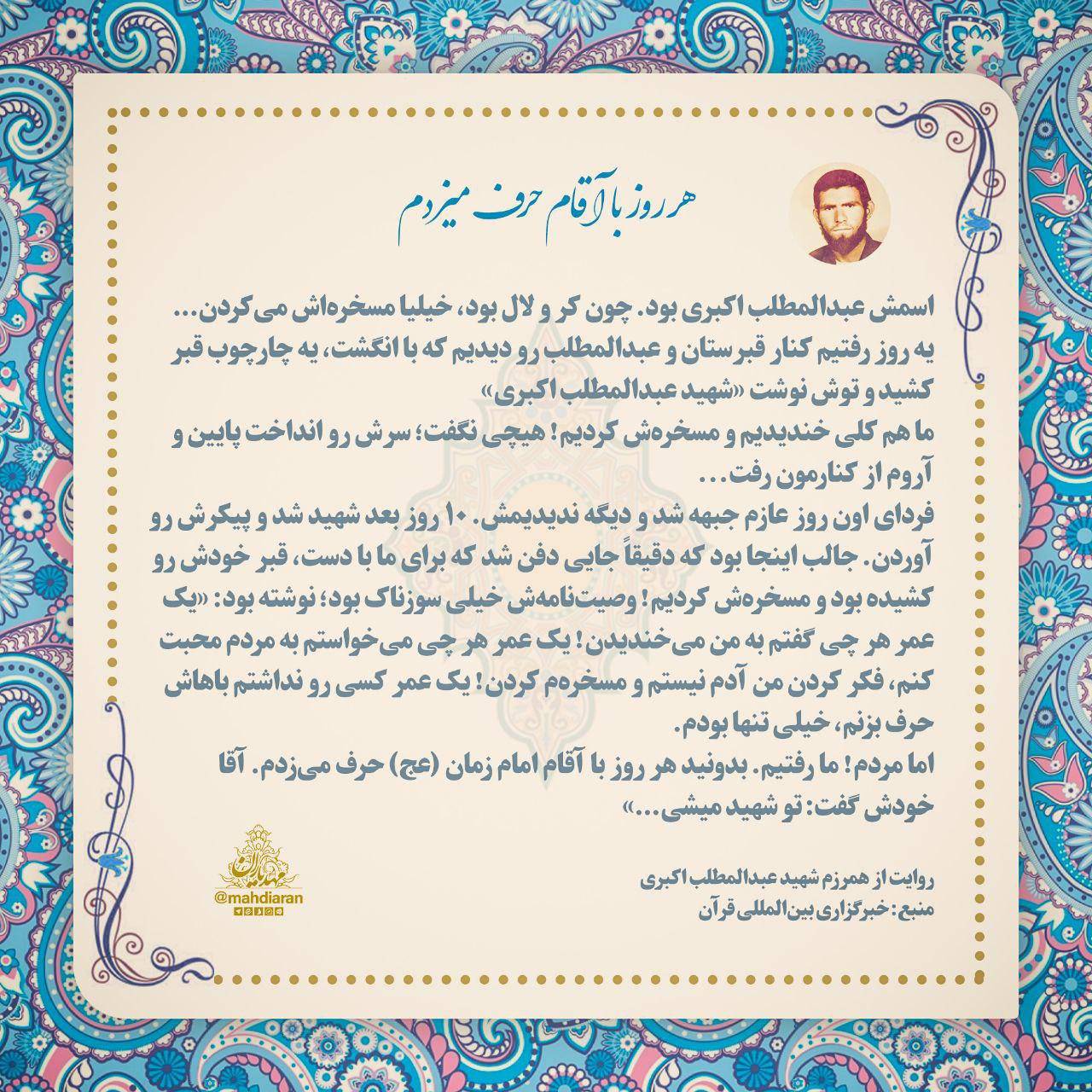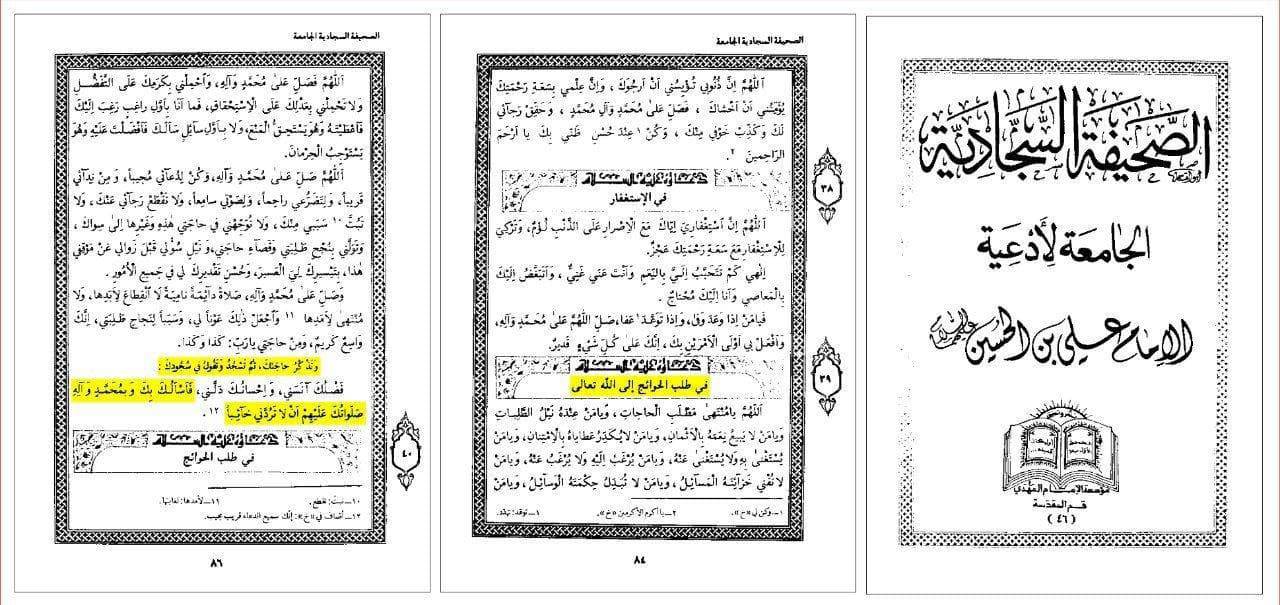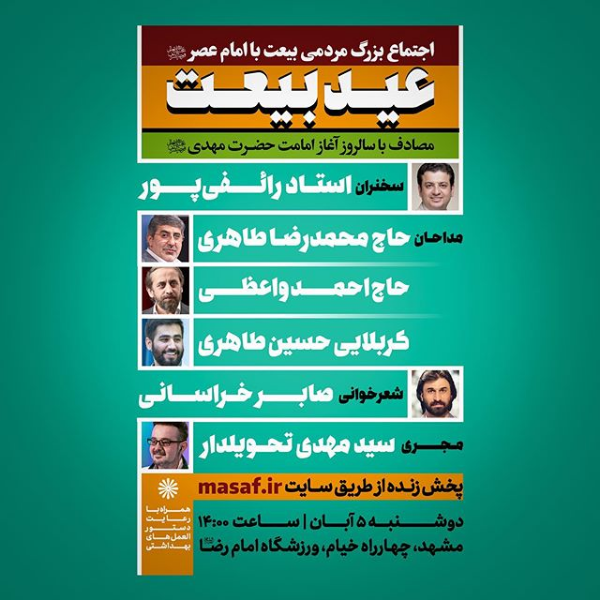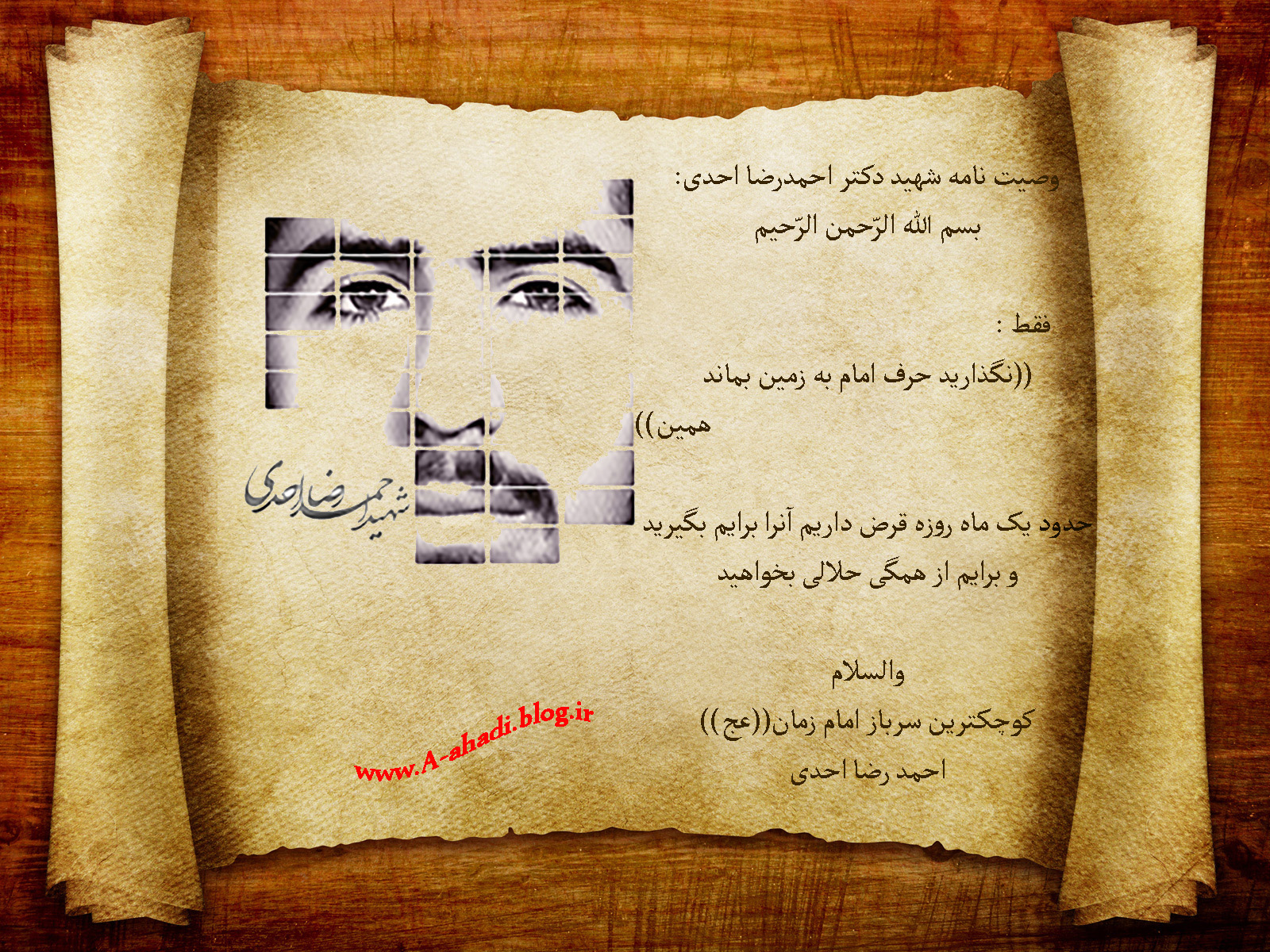The 9th of Rabī’ al-Awwal, 260 A.H. (The 6th January 874A.D.)
In the lunar calendar, the ninth day of Rabī’ al-Awwal is the anniversary of the beginning of the Imamate (Divine Leadership) of the last Divine Savior (Imam Mahdi). It is also the day of renewing the covenant with him; and with his purposes and sacred ideals. For this reason, Shias (followers) of this Imam (Divine Leader) and those who wait for his appearance consider this blessed day holy and celebrate it. (In the year 2020, this holy day is on Monday, the 26th of October.)
The Twelver Shia believe that Imamate is a divine trust in the hand of an Imam and at the time of his departure to Allah, he delivers it immediately to the next Imam without any interval and interruption even for one quick moment.
Because according to Islamic narrations, the earth cannot be empty from a Divine Authority; otherwise, the earth will be destroyed with its entire inhabitants.
Imam Sādiq (the Shia’s sixth Imam) narrates from Imam Ali (the Shia’s first Imam) to have said,
«…وَ اِعْلَمُوا أَنَّ اَلْأَرْضَ لاَ تَخْلُو مِنْ حُجَّةٍ لِلَّهِ وَ لَکِنَّ اَللَّهَ سَیُعْمِی خَلْقَهُ مِنْهَا بِظُلْمِهِمْ وَ جَورِهِمْ وَ إِسْرَافِهِمْ عَلَى أَنْفُسِهِمْ؛ وَ لَوْ خَلَتِ اَلْأَرْضُ سَاعَةً وَاحِدَةً مِنْ حُجَّةٍ لِلَّهِ لَسَاخَتْ بِأَهْلِهَ…»
“…Know that indeed the earth cannot be void of a Divine Authority but Allah will not, later on, let His creatures see him because of their oppression, cruelty, and committing sins. If the earth becomes void of a Divine Authority even for one moment, it collapses with all its inhabitants…”
As a result, after the martyrdom of an Infallible Imam, his successor who is appointed by the blessed Prophet in advance according to the command of Allah, the Exalted, the Glorified, and with the emphasis of the previous Imam, becomes the Imam of the community.
Then, the close friends and relatives of the previous Imam conveyed their condolence about the martyrdom of the deceased Imam to the next one and gave allegiance to him. However, with regard to Imam Mahdi, the political situation and the observance of Taqīyya (precautionary reservation) often prevented public allegiance to be sworn for him, or even let people be aware of the place of his existence.
With this introduction, determining the beginning of Imam Mahdi’s Imamate is dependent on knowing the accurate time of his father’s martyrdom – Imam Hassan al-‘Askarī (the eleventh Imam). Great and famous scholars of The Twelver Shias like Shaykh Kuleynī, Shaykh Sadūq, Shaykh Mufīd, and Shaykh Tūsī have recorded the time of Imam Hassan al-‘Askarī’s martyrdom on Friday, the 8th of Rabī’ al-Awwal in 260 A.H.
The first day of Imam Mahdi’s Imamate is on Friday and according to a well-known narration in Shia’s viewpoint, the appearance of his majesty will be on Friday as well.
In accordance with some historical documents, after five years leaving under the supervision of his magnanimous father (Imam Hassan al-‘Askarī) and precious mother (Narjis ), Imam Mahdi became Imam at the age of five at the same time as his father was martyred just as prophet Jesus and prophet John had attained the high position of prophecy in their childhood. Therefore, the ninth day of Rabī’ al-Awwal coincides with the first day of Imamate of Imam Mahdi. Of course, his Imamate begins from the exact moment of his father’s martyrdom (the eighth of Rabī’ al-Awwal) but, to honor the day of Imam ‘Askarī’s martyrdom, Shias do not regard that day as the beginning day of Imam Mahdi’s Imamate for congratulating and celebrating.
Sayyed bin Tāwūs, a well-known Shia scholar, after registering the Imam ‘Askarī’s martyrdom on the 8th of Rabī’ al-Awwal, says, “The beginning of Imam Mahdi’s Imamate is on the 9th of Rabī’ al-Awwal. Perhaps this is the reason for celebrating this day.”
Abū Sahl bin Ali al-Nubakhtī, who was an authentic and reliable person for some Infallible Imams especially for Imam ‘Askarī and the Imam of the Age, says, “After Mu’tamad (the cruel Abbasid caliph) had poisoned Imam ‘Askarī, I visited the Imam when his son was there. The Imam was upset and so weak that, when a container of water was given to him to drink, he could not hold it. His body was trembling and could I hear the sound of his teeth touching the container. At this moment, Imam Mahdi arrived. By seeing him, Imam ‘Askarī became very happy, but he cried for a moment. Then Imam ‘Askarī introduced him as the last executor and deputy of the Messenger of Allah, the last Imam of the believers, and the true authority of Allah. After that, he made his will to him.”
Abū Sahl continued, “That moment I deeply sensed that it was the beginning moment of accepting the responsibility of Imamate by the Imam of the Age. Then I heard that Imam ‘Askarī said to his infallible son,
«یَا سَیِّدَ أَهْلِ بَیْتِهِ اسْقِنِی الْمَاءَ فَإِنِّی ذَاهِبٌ إِلَى رَبِّی».
“O the master of your household! Give me some water, surely I will depart to my Lord.”
Imam Mahdi gave him water and helped him to do minor ablution.
Besides, Imam Hassan ‘Askarī and Imam Mahdi spoke with each other about something and I heard that Imam ‘Askarī said to his son,
«أَبْشِرْ یَا بُنَیَّ فَأَنْتَ صَاحِبُ الزَّمَانِ وَ أَنْتَ الْمَهْدِیُّ وَ أَنْتَ حُجَّةُ اللَّهِ عَلَى أَرْضِهِ وَ أَنْتَ وَلَدِی وَ وَصِیِّی».
“Good news for you, O my son! You are the Imam of the Age, you are guided, you are the Authority of Allah on His earth, you are my son and my executor.”
Then Imam ‘Askarī achieved the high divine degree of martyrdom.
Of course, after the martyrdom of Imam ‘Askarī, the Shias needed some convincing and reliable reasons to accept the authority and the Imamate of Imam Mahdi.
Abū al-Adyān is one of the servants and one of the Imam’s close companions. Ibn-e Bābiwayh narrates through him, “Imam ‘Askarī gave me a mission to go to Ctesiphon and deliver some letters there. The Imam said, ‘O Abū al-Adyān! When you come back from Ctesiphon to Samara after 15 days, you will find this city full of screams and clamor because I would have been martyred.’ I felt worried and asked about his successor and asked, “After your martyrdom who must undertake the responsibility of Imamate of the Muslim community?” His Majesty gave me three signs in response and said,
Firstly, he is who performs the funeral prayer to my body;
Secondly, he is who demands you the answers to the letters;
And thirdly, he is who informs you about what the bags and packages contain.”
Abū al-Adyān continued, “Decency prevented me from asking his majesty about the bags. I did not ask anymore and traveled to Ctesiphon with grief. I accomplished the mission and when I returned, as Imam ‘Askarī had said, he had been martyred.
At that time, the important issue for me was to know who was the successor of the eleventh Imam and the real authority of Allah. I entered the house of Imam ‘Askarī and saw his brother Ja’far (popularly known as Kazzāb ) who was sitting in a special position and all visitors conveyed their condolence to him. It simulated that he was the successor of Imam ‘Askarī, while I knew that he had a bad record, used to do some unrighteous deeds, and forbidden acts.
I was sure he did not deserve to be an Imam, but he was standing in such a position and the tyrant government of Banī Abbas were trying to introduce him as the successor of Imam ‘Askarī. Meanwhile, it was informed that he would come to lead the funeral prayer for Imam ‘Askarī. Then he went towards the pure body of the Imam to say the prayer. At that time, I saw a boy, who was attractive, and apparently possessed all kinds of good merits and excellence came and took the vestment of his uncle and said, “Oh uncle! Move over because I am more worthy to say the funeral prayer for my father. The boy pushed him aside and performed the funeral prayer. Seeing this scene, I was convinced that one of the signs that Imam Hassan ‘Askarī had mentioned, came true.
Then, I was waiting for the other signs to come true. When saying the prayer was over, the honorable boy pointed to me to give him the letters and what those who had received the letters told me in response. This was the second sign. Because this was the letters that Imam ‘Askarī had given to me and I took them to Medina to hand them over to the friends of the Imam. Here I transferred their answers along with some Islamic payments and handed them over to the respected boy.
I was waiting for the third sign to become true. Meanwhile, a group of the believers of Qom came and stood among the mourning crowd and asked, “Who is the successor of Imam ‘Askarī?”
They were introduced to Ja’far. When they came to him, they asked,
“Are you the successor of Imam ‘Askarī?” He answered, “Yes.” They said, “Tell us what we are carrying; and that the letters that are with us were written by whom and for whom and what the things we have with ourselves are, and how much it is.”
Ja’far got flared up and said, “Wow! See what these people ask me? Do they ask for prescience?”
Abū al-Adyān continued, “I found out he was not an Imam. Also, the people who had come from Qom made sure that an Imam and the successor of Imam ‘Askarī should be someone else.”
At that moment, a messenger came from inside the house and said, “Hujjat Allah (the Imam of the Age) said, “The letters that you, people of Qom, have brought to Imam ‘Askarī are from such and such people, bring those letters and there are some sacks along with you in which there are one thousand dinars and among them is a share of the Imam but ten dinars of them are fake, covered with gold, and are not original. They opened the sacks and saw the one thousand dinars and recognized those ten fake ones.
Abū al-Adyān states, “I saw exactly the very three signs that Imam Hassan ‘Askarī had told me about and I became sure that the honorable boy who offered the funeral prayer for Imam ‘Askarī was the Imam of the Islamic Ummah and the last executor of the holy Prophet.”
Therefore, after the martyrdom of Imam Hassan ‘Askarī in 260 A.H. which coincides with the ninth of Rabī’, the Imam of the Age was chosen to accept the position of Imamate.
Unique Feature of This Day
The ninth of Rabī’ al-Awwal, as the anniversary of the beginning of the Imamate of the Promised Savior, is the beginning of the last Divine appointment which is along with prophetic missions and the appointment of Imam Ali as the successor of the Prophet on the day of Ghadir.
This day is important since it reminds us of the beginning of something that is considered to carry all the values of the previous sacred goals. If the prominent of the sacred beginnings in the past such as the beginning of Prophet’s mission [Bi῾that] or the Ghadir day are the important religious Eves, the ninth of Rabī’ al-Awwal is also the final beginning of another holy event. However, unfortunately, the value of this Eve has not been known in the Shia’s community and is not as well-known as to the Eve of the fifth of Sha’ban which is the day that Imam Mahdi was born.
On the other hand, the ninth of Rabī’ al-Awwal deserves special attention in Shiites’ culture because historically, this day is the moment of being on the border of two important historical periods in the Shiite view; that is, being at the end of the period of the public presentation of the infallible Guides (the Prophets and the eleven Imams of the Shias) in human society, and the beginning of the disappearance of the last Divine proof (the twelfth Imam) from the society.
This is a beginning for the maturity of Shiites to comply with the guidance of worthy believers – who were the Imam Mahdi’s special deputies during the period of minor occultation and are the Imam’s General Deputies during the period of his major occultation – who undertake the responsibility of the Islamic community management until the advent of the Imam. Because no ordinary man saw Imam Mahdi after his funeral prayer over his father’s body anymore; it shows that the occultation of him began at the same time.
It should not be forgotten that, not only the ninth of Rabī’ al-Awwal is the first day of the Imamate of the Imam of the Age, the manifestation of the rule of the downtrodden people, a promising inspiration for the defeat of the tyrants, and the happy day for the Shias, but also it is the day of “renewing the allegiance” to the alive and present Imam; so that awaiting people of the last Savior’s advent should strengthen their attention in relation with their Imam.
In fact, this renewal of allegiance is one of the features of the Shiite culture and a kind of divine covenant as we read in the Āl-e Yāsīn supplication,
«السَّلامُ عَلَیکَ یا میثاقَ اللهِ الَّذی أخَذَهُ وَ وَکَّدَهُ».
“Peace be upon you O, the covenant of Allah, that Allah has taken from people and made it firm.”
In fact, the Shias believe that there is a permanent link between Divine guardianship and the issue of Imamate; so real waiting people for the Imam of the Age have to always update their sincerity and allegiance with that Imam in accordance with the condition of their time.
The truth is that, as the Ghadir day is the renewal of allegiance to the first Imam (Imam Ali), so the ninth day of Rabī’ al-Awwal is the continuous renewal of allegiance to the hidden Imam during his occultation. And this is the continuous vitality and development for the Shiite community until the threshold of the Advent.
A Question
Here a question is raised that, why do we just celebrate the beginning of Imam Mahdi’s Imamate, but we do not do it for other Imams after the martyrdom of the previous ones!?
In response, we can pay attention to some points:
First, creating a culture to celebrate the Days of Allah , such as Ghadir and Mab’ath Eid, the anniversary of the Holy Prophet’s birthday, and other religious occasions are rooted in the cultural life of the Household of the Prophet. The Shias celebrate both of the birthday and the day of the beginning the mission of the Messenger of Allah; and both of the birthday of Imam Ali who is the Commander of the Faithful and the Ghadir Eve. The Shia are used to celebrate these days since they are the beginning days of some important religious events.
Therefore, it is worthwhile to celebrate both of the anniversary birthday and the Imamate of the Reminder of Allah (Imam Mahdi), on the ninth of Rabī’ al-Awwal, and to be happy on these days.
Second, the only alive Imam in our time is Imam Mahdi, and all other Imams have been martyred, so we celebrate the Imamate of the Imam of the Age because he is present and responsible for the leadership of humankind in the current time.
On this occasion, the renewal of allegiance is done to this honorable Imam at the anniversary beginning of his Imamate; as Imam Sādiq (the Shia’s sixth Imam) has reminded it to the Shias by ordering them to recite the ‘Ahd supplication. He states,
«مَن دَعا إلی اللهِ أربَعینَ صَباحاً بِهذا العَهدِ کانَ مِن أنصارِ قائِمِنا وَ إن ماتَ أخرَجَهُ اللهُ إلَیهِ مِن قَبرِهِ وَ أعطاهُ اللهُ بِکُلِّ کَلِمَةٍ ألفَ حَسَنَةٍ وَ مَحا عَنهُ ألفَ سَیّئَةٍ».
“Whoever recites this ‘Ahd (supplication) forty mornings, will be one of our Upriser’s helper; and if he dies before the appearance of the Imam, he will be taken out of the grave and serve the Imam, and Allah will grand him with every word of this prayer one thousand rewards and erase one thousand sins from him.”
Therefore, since our time is the time of Imam Mahdi’s Imamate our hearts and minds should pay more attention to him, so that the issue of Imamate in the period of Occultation that has been lasting for a long time, will not be forgotten, and the desire of expectation will be more aroused in the hearts. This is why we attempt and desire to remember and celebrate this day.
This celebration gains more emphasis when we notice that the atmosphere of the present situation in the contemporary world has changed and the existence of the Imam is doubted by the enemies of the Household of the Prophet, and the belief in Imam Mahdi has faced many forms of misinterpretation and doubt. Consequently, the commemoration of this day is an attempt to deepen this Islamic and Shiite belief in the hearts of the believers and to pay attention more to Islamic teachings about the conduct of the Ahl al-Bayt.
Third, when this day is considered as an Eve in continuation of “Ghadir Eve”, honoring, protecting, and revival of it is as worthy as Ghadir Eve; and as the Household of the Prophet revived and created the culture of Ghadir Eve, it is necessary to revive the ninth of Rabī’, which is the last and most special delegation of Imamate. Imam Ali in a narration expresses some characteristics of his Shias, and considers their joy and sorrow wise and purposeful and relates them to the infallible Imam and states,
«إنَّ اللهَ تَبارَکَ وَ تَعالی اطَّلَعَ إلی الأَرضِ فَاختارَنا وَ إِختارَ لَنا شیعَةً یَنصُرونَنا وَ یَفرَحونَ لِفَرَحِنا وَ یَحزَنونَ لِحُزنِنا وَ یَبذُلونَ أموالَهِم وَ أنفُسَهُم فینا اولئِکَ مِنّا وَ إلَینا».
“Allah the Exalted, the Glorified noticed the earth and chose us, and chose Shias for us to help us. They rejoice in our joy and grieve when we are sad. They sacrifice their lives and spend their properties in our way. They are from us and they return to us.”
Therefore, just as the holding mourning ceremonies for the two months of Muharram and Safar are two examples of “they grieve when we are sad” the celebration of the ninth of Rabī’ is also an example of “They rejoice in our joy.”
It is worthwhile to know that the lovers of Imam Mahdi and those who wait for his coming must make a special effort to protect this great day and make it popular. On this day, we must review the contents of our covenants which are mentioned in the narrations and supplications, especially the ‘Ahd supplication; and recognize and reread the rights and obligations that we owe to the Promised Imam and in fact, this is our commitment to Allah. Because Imam Sādiq (the sixth Imam) in response to one of his followers, about the interpretation of this verse,
﴿لا یَملِکونَ الشَّفاعَةَ إلّا مَن اتَّخَذَ عِندَ الرَّحمنِ عَهداً﴾.
“[On the Day of Judgment, the intercessors] are not able to intercede, but those [such as the Prophets, Imams, Angels, and the friends of Allah] who get a covenant [of the permission to intercede] on behalf of the Beneficent [Allah].”
States,
«إلّا مَن دانَ الله بِوِلایَةِ أمیرِالمُؤمِنین وَ الأئِمَّةِ مِن بَعدِهِ فَهُوَ العَهدُ عِندَ اللهِ».
“Indeed, covenant with Allah (God) is the acceptance of the guardianship of the Commander of the Faithful and the Imams after him.”






